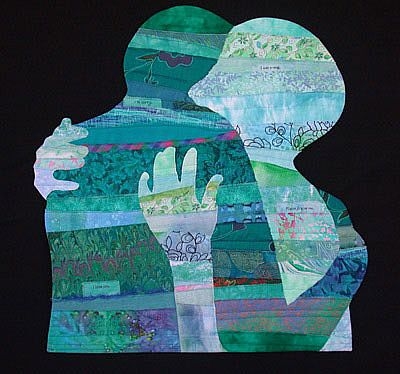Repairing Relationships When a Parent Dies
Reconciliation within families is not always easy and yet the death of a parent often provides the opportunity to do the hard work of putting the past in the past and creating a new relationship for the future.
Vayechi, the final parsha in the book of B’reishit, closes the narrative on our ancestors. Just as parshat Hayyei Sarah (life of Sarah) begins the pattern of life summations followed by burial in the cave of Machpelah, Vayechi (and he lived) tells of the final ancestral burial at Machpelah, that of Jacob by an entourage of Joseph, his brothers, and Egyptian officers.
Each generation of biblical siblings has a different reconciliation scenario, putting aside their sibling rivalries. For Ishmael and Isaac, there are no details of the reconciliation beyond “his sons Isaac and Ishmael buried him in the cave of Machpelah;” for Esau and Jacob there is an elaborate presentation of tribute and Esau kissing Jacob and the two weeping together, and then the text again says very simply that Isaac was buried by his sons Esau and Jacob. For the final sibling reconciliation in the Genesis narrative, when Joseph is ready to reveal his identity to his brothers, he is so emotional he clears the room of his Egyptian attendants, the brothers kiss and weep with each other. The burial of their father requires leaving Egypt in order to bury Jacob/Israel in the land and they all make the journey.
And yet when they return to Egypt the brothers are not confident in the reconciliation. Is it their guilt for throwing Joseph in the pit that feeds this feeling or are they projecting their own lack of generosity? The Hebrew expression for the emotional kiss exchanged between the siblings and even Jacob and Joseph is “fall on his neck.” I see in this expression a metaphor for having one’s defenses down – your neck is exposed, that this kind of kiss is truly one of emotional vulnerability and exposure.
Years of sibling rivalry or estrangement can create emotional walls to protect us from repeated hurts and are not easy to remove. How can we feel safe enough to risk taking those emotional walls down? How can we accept our brothers/sisters for who they are and find the generosity of spirit to see that the hurt they have caused us might come from a place of pain for them? Can we ask them to do the same? Or do we reconcile ourselves to not being able to reconcile with a sibling and work to make peace with that within our hearts?
Perhaps if we focus as much on the reconciliations as the estrangements in the biblical narratives, it would help us see that in our lives as well.
Shavua tov,
JoHanna Potts






 Evan J. Krame was ordained as a rabbi by the
Evan J. Krame was ordained as a rabbi by the